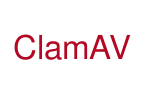Software Release - psad-2.2.1
02 January, 2013
 The 2.2.1 release of psad is
available for download. This release
adds new support for detecting a type of scan that psad has been previously
blind to - IP protocol scanning (nmap -sO). Also in this release is the
ability to detect Topera IPv6
scans and differentiate them from Nmap IPv6 scans. Other important changes
include a new test suite, email throttling, and auto blocking timeouts that
can be set for each danger level. Here is the complete ChangeLog:
The 2.2.1 release of psad is
available for download. This release
adds new support for detecting a type of scan that psad has been previously
blind to - IP protocol scanning (nmap -sO). Also in this release is the
ability to detect Topera IPv6
scans and differentiate them from Nmap IPv6 scans. Other important changes
include a new test suite, email throttling, and auto blocking timeouts that
can be set for each danger level. Here is the complete ChangeLog:
- Added IP protocol scan detection (nmap -sO). A new psad.conf variable PROTOCOL_SCAN_THRESHOLD defines the minimum number of different IP protocols (default = 5) that must be scanned before an alert is triggered.
- Added detection for Topera IPv6 scans when --log-ip-options is used in
the ip6tables logging rule. When this option is not used, the previous
psad-2.2 release detected Topera scans. An example TCP SYN packet
generated by Topera when --log-ip-options is used looks like this (note
the series of empty IP options strings "OPT ( )":
Dec 20 20:10:40 rohan kernel: [ 488.495776] DROP IN=eth0 OUT= MAC=00:1b:b9:76:9c:e4:00:13:46:3a:41:36:86:dd SRC=2012:1234:1234:0000:0000:0000:0000:0001 DST=2012:1234:1234:0000:0000:0000:0000:0002 LEN=132 TC=0 HOPLIMIT=64 FLOWLBL=0 OPT ( ) OPT ( ) OPT ( ) OPT ( ) OPT ( ) OPT ( ) OPT ( ) OPT ( ) OPT ( ) PROTO=TCP SPT=61287 DPT=1 WINDOW=8192 RES=0x00 SYN URGP=0
- Bug fix in --Analyze mode when IP fields are to be searched with the
--analysis-fields argument (such as --analysis-fields "SRC:1.2.3.4").
The bug was reported by Gregorio Narvaez, and looked like this:
Use of uninitialized value $_[0] in length at ../../blib/lib/NetAddr/IP/UtilPP.pm (autosplit into ../../blib/lib/auto/NetAddr/IP/UtilPP/hasbits.al) line 126. Use of uninitialized value $_[0] in length at ../../blib/lib/NetAddr/IP/UtilPP.pm (autosplit into ../../blib/lib/auto/NetAddr/IP/UtilPP/hasbits.al) line 126. Bad argument length for NetAddr::IP::UtilPP::hasbits, is 0, should be 128 at ../../blib/lib/NetAddr/IP/UtilPP.pm (autosplit into ../../blib/lib/auto/NetAddr/IP/UtilPP/_deadlen.al) line 122.
- Added --stdin argument to allow psad to collect iptables log data from
STDIN in --Analyze mode. This makes it easier to run an iptables logs
through psad from arbitrary files like so:
# grep "IN=.*OUT=" /var/log/kern.log | psad -A --stdin
- Added the ability to acquire Snort rule 'msg' fields from fwsnort if it's also installed. A new variable FWSNORT_RULES_DIR tells psad where to look for the fwsnort rule set. This fixes a problem reported by Pui Edylie to the psad mailing list where fwsnort logged an attack that psad could not map back to a descriptive 'msg' field.
- Added the ability to set per-danger level timeouts when psad is configured to run in auto-blocking mode. These timeouts are implemented with new AUTO_BLOCK_DL*_TIMEOUT variables - one for each of the five possible danger levels that may be assigned to a scanning IP address.
- Added the ability to throttle emails generated by psad via a new EMAIL_THROTTLE variable which is implemented as a per-IP threshold. That is, if EMAIL_THROTTLE is set to "10", then psad will only send 1/10th as many emails for each scanning IP as it would have normally.
 Recently a
Recently a 


 Guardian Digital is happy to announce the release of EnGarde Secure Community 3.0.18 (Version 3.0,
Release 18). This release includes many updated packages and bug fixes, some feature enhancements
to Guardian Digital WebTool and the SELinux policy, and a few new features.
Guardian Digital is happy to announce the release of EnGarde Secure Community 3.0.18 (Version 3.0,
Release 18). This release includes many updated packages and bug fixes, some feature enhancements
to Guardian Digital WebTool and the SELinux policy, and a few new features.




